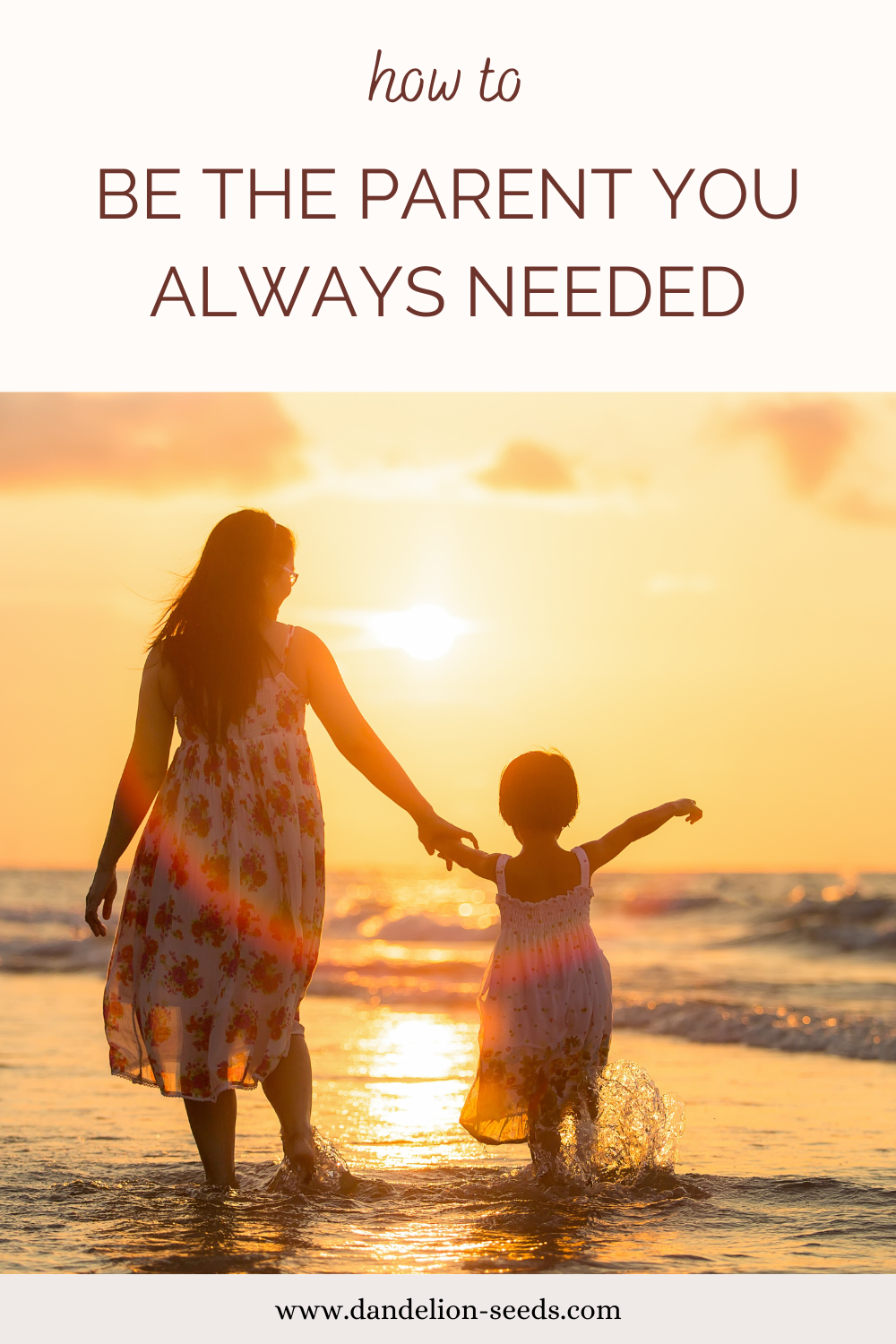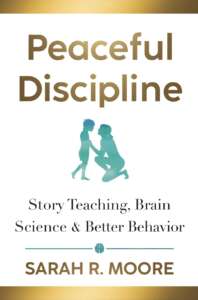
Sign in
Don't have an account with us? Sign up using the form below and get some free bonuses!

When people say it's important to "reparent yourself," they're referring to your ability to show up for yourself in the ways you always needed, but perhaps didn't receive from your family of origin.
It's not that everyone was raised without healthy relationships. Many people were raised by loving families (or at least one emotionally healthy adult), where they learned their feelings matter. Perhaps they learned effective communication skills early on, and had few to no issues with self-esteem.
Maybe they learned how to resolve conflicts and overcome setbacks with the loving support of their parents, and their parents also modeled how to show up without neglecting their own needs.
For many of us, though, our own parents' emotional skills, mental health, parenting skills, or general capacity to support us may not have been all we'd hoped for.
And let's be honest.
This grief is real and valid.
We can't sweep it under the rug if we want to move forward with the life skills that will serve us better in the future. We need to allow that grief and process it fully.
At the same time, let me reassure you: healing is possible.
Although I wish I could offer you a sure-fire way to directly heal your childhood self, what I can do is offer you some extremely practical suggestions while you're learning how to reparent yourself.
I'll also be transparent about this, though--free self-help articles usually aren't enough. A trained therapist treats issues like these better than an article on the Internet ever could. (I assure you, though, as a conscious parenting educator and author who works with families all over the world, I do have firsthand experience with this).
My hope is that, in tandem with whatever support you're receiving from compassionate caretakers, this article will at least be a starting point for you.
Here are some ways you can begin the work to reparent yourself.
Many of us who had a "suboptimal" or dysfunctional family of origin may believe our struggles are somehow all our fault. This is often the case for kids who were forced to grow up too soon. Perhaps we were the mature or responsible one in our family, even more than our parents.
We might "know better" intellectually, but somewhere deep down, our younger self may still feel partially responsible for the grief we're holding.
We may believe that we could've or should've done something differently when we were kids. Perhaps we had no real role models, but somehow we still learned to expect perfection of ourselves.
This would've been impossible to accomplish, of course. If no one showed us how to effectively navigate life's ups and downs, we likely ended up setting idealistic goals for ourselves with no roadmap of how to achieve them.
Stuffing down our pain doesn't get us far (and in fact, it likely sets us back).
Many of us claim we "turned out fine," but that statement is only a mask that our younger self wore as a facade for self-confidence.
When we're brave enough to accept all our feelings, our life satisfaction tends to go up, and we realize that the one who models acceptance best is our own self.
Self-acceptance means we can invite our inner child into the discussion, realize what emotional skills we needed most when we were growing up, and learn them now.
With self-compassion, we can feel what we need to feel, and heal what we need to heal.

There are so many other adults who sincerely crave deep, healthy relationships with others. With you.
Truly unconditional love, unlike that which you knew growing up, might be just at your doorstep--if you're emotionally ready to receive it. When you let yourself heal, you make room for healthy relationships.
We may need the support of a trained therapist to help us avoid repeating the cycle of choosing a support network that mimics our family of origin (and therefore, offers no respite from the patterns we're trying to heal).
We may need to develop new emotional skills while we choose a loving relationship (platonic or otherwise) that is actually based on mutual respect, trust, and support for one another's emotional needs.
When we work on creating relationships based on these things, we practice the healthier habits we craved when we were children.
We do this while remembering, of course, that no one handles relationships perfectly all the time, and no one's social-emotional skills are 100% all the time. Still, our adult self can shift the pattern of choosing unhealthy relationships and replacing them with those that reflect our newfound emotional health.
If you want to reparent yourself, you must focus on limiting unhealthy activities and people who only keep your pain alive.
We have limited capacity for relationships (there are only so many hours in the day!), so choose wisely.

Your children depend on you for so much more than just their basic needs. You're modeling healthy relationships, healthy boundaries, and healthy coping skills.
They also need you to model self-care, so they know they're worthy of caring for themselves someday.
Your childhood self heals from each one of those positive interactions.
It's as if "little you" were observing how you treat your children and saying, "Yes! THAT is what I always needed."
When you contribute positively to the emotional health of your children, you reparent yourself by showing that it's possible to have a healthier parent-child dynamic.
You will model how to tolerate unpleasant emotions, embody emotional regulation, and the lead with the social-emotional skills you want them to emulate.
You will show your children how to have a more loving relationship with themselves because you showed them they were worthy of a different, healthier kind of love, first.
Specifically, you won't leave them for so-called "self-soothing," because you've learned that excessive self-soothing can backfire and leave a child feeling self-critical and emotionally distraught.
Instead, you stay with them to co-regulate when they need you, knowing that this may require tremendous growth on your part, but that you create healthier habits as a parent when you do this.
To reparent yourself, you must surround yourself with people who support and encourage you.
You're around yourself more than anyone else, of course.
Different from who you surround yourself with in your social circles, this is how you relate to your own thought patterns.
That means that for true self-care to happen, you need to be really, really kind to yourself. You must pay attention to your inner child and whatever narrative they've carried into adulthood about their worth.
Establish the self-discipline to lovingly correct yourself when you hear negative self-talk, especially if it's self-talk you learned when you were a child.
Many adults have trouble expressing themselves kindly, especially in their own thoughts about themselves--and especially if they were raised in a damaging or punitive home.
The risk we face is turning the punishment we received as kids into self-punishment as we grow older.
We learn more about this in the book Peaceful Discipline:
"...As for kids 'deserving' punishments, it’s interesting to note that children believe they deserve whatever treatment we give them—not because of what they’ve done but because of who they are.
Children often believe that good things happen to good people, and bad things happen to bad people. That’s how it works in the movies they watch, right? The good characters are rewarded, and the bad ones are punished or permanently exiled.
No one goes after the bad characters to remind them they’re still lovable. Therefore, if something bad happens to a child (a punishment), they may think it’s because they are bad and not worthy of acceptance.
We do not want children to carry this belief about their inherent self-worth into adolescence and adulthood..."
Self-compassion involves being kind, understanding, and caring towards yourself. Instead of criticizing or judging yourself, try to approach yourself with a gentle and understanding tone. Speak to yourself with kindness. Give yourself the care and attention you always needed--and still deserve today.
Boundaries are an essential aspect of reparenting yourself. They allow you to set limits and create a sense of safety in your relationships.
When you establish healthy boundaries, you create a sense of control over your life, which is essential for your emotional well-being.

In a recent article about our children pushing boundaries, I examine how recognizing unhealthy relationships related to our boundaries may influence our parenting. Here's an excerpt:
Boundaries if we had authoritarian parents
If we grew up with parents who we "had to obey or else," we may have learned one of two things:
We wrongly believe that we don't get to have boundaries, so we may struggle to stand up for ourselves. How this manifests in parenting is that we may end up being too permissive, especially if children express big feelings when we give a voice to our needs.
The risk: We lose ourselves in the process and likely end up resentful.
The solution: Understand that, as a therapist once told me, "You're allowed to take up space." In other words, you can examine your own needs and be confident that every single one of them is valid. You can stand up for yourself while still raising your children with patience, connection, and compassion.
When you lean into trusting your mind and body, learning how to peacefully express yourself in ways that do no harm, you're modeling for your child the benefits of having boundaries.
Your kids will learn that they don't have to be compliant in order to be valued.
We have boundaries that are too rigid, and we force our children to respect our limits every time, without question.
The risk: We push our children away. Just like if we put too much pressure on a twig, it will break. That's not what we want to do to our relationship with our children.
The solution: We learn that, yes, we can have limits, but the best limits and boundaries are the ones that we co-create with our children. Kids push back less when they feel they've had a say in what we're asking of them (and it also reflects best practices of conscious parenting).
Additionally, here's what often happens to adult children of permissive parents (in other words, parents who rarely, if ever, offered boundaries.
If our parents were permissive, that leaves social-emotional deficits in the now-adult child. If our parents didn't know how to--or chose not to--guide us, we may suffer in the following ways:
We may give ourselves overly harsh criticism, with our inner child believing we didn't deserve guidance
We might suffer in emotional situations that require life skills for which we had no role models
We may be chronic people-pleasers, constantly searching for the validation and presence we always craved from our parents
A word of warning: when you begin to reparent yourself, you may uncover additional deficits in your family of origin.
Although you may already know the obvious areas where they let you down, once you start to heal, you may unearth even more work to be done.
This is normal. Get support if you need it.

Reparenting yourself is a process that takes time and patience. It is important to be kind and understanding towards yourself, and to allow yourself the time and space to heal. Remember that healing is not a linear process, and there absolutely will be ups and downs along the way.
Reparenting yourself is a powerful process that can help you to heal childhood wounds, establish a new internal sense of safety, security, and self-worth, and lead a more fulfilling life. By following these steps, you can learn to be the parent you always wanted, to yourself, and create a new relationship with yourself that is more supportive, loving, and nurturing.
